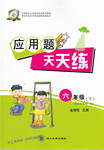题目内容
Youth volunteers from Beijing University visited Songtang Hospital, a care clinic for the aged and dying patients, on April 21, the second Global Youth Service Day.
Thirty student volunteers from the university’s School of International Studies sat at the beds of the patients in their specially-decorated “care huts”. They talked with them and gave messages to patients kept in their beds.
“I felt sorry that I could not offer more to these people except talking with them and trying to cheer them up”, said Deng Yetao, a third-year student, “But it occurred to me that they need more care and love than babies. They are afraid of the coming deat h. Their loneliness is worse than physical p
h. Their loneliness is worse than physical p ains.”
ains.”
“Even though they are suffering a lot, the majority of the elderly people want to talk to us. Each of them has a lot of life experiences and philosophies to share. Instead of doing them a favor, I felt I was gaining a valuable lesson,” said Mao Xiaohua, another third-year student.
Mao talked with two elderly patients for a whole afternoon. The fact that most of the patients in the 80-room clinic are aged people with diseases which will lead to death soon made the volunteers’ hearts heavy.
Ninety-one percent of the patients will spend the last days of their lives in the clinic, according to a survey by the hospital.
Daily visits and services by social workers and youth volunteers are a very important part of their programme. A total of 330,000 Beijing students from 119 universities and colleges have visited the hospital. Many continue to offer services in their spare time. Some of them volunteer to hold the hands of dying patients during the last minutes of their lives.
Yin Hang, a student from Beijing Medical College, said he felt “the glory of life” as he saw the fading smile on the face of the old man who slipped into a deep unconsciousness while he was holding his hands.
61. Youth volunteers from Beijing University went to Songtang Hospital to ______.
A. pay a visit to the wounded B. talk with the aged
C. offer services to the aged D. learn something from the aged
62. What the aged most suffered from is ______.
A. loneliness B. death C. physical pain D. disease
63. According to what Mao Xiaohua said, we know that_____.
A. the elderly taught him a good lesson when he talked to them
B. he learned something important from the elderly instead of only helping them
C. he only wanted to get something rather than do them a favor
D. he was glad to have given them a favor
64. When volunteers know most of the aged people in the clinic are dying patients, they feel _____.
A. sad B. disappointed C. hopeless D. worthless
65. Which of the following statements is TRUE according to the passage?
A. The youth are fond of doing popular things.
B. The Second Youth Service Day is started by the Chinese government.
C. 91% of the aged in China are facing death.
D. The volunteers are taking an active part in the activity
61---65 CABAD
解析

 应用题天天练四川大学出版社系列答案
应用题天天练四川大学出版社系列答案请认真阅读下面短文,并根据所读内容在文章后图表中的空格里填入最恰当的单词。注意:每空只填一个单词。
Bored at school now? How do you think it will look in the future? Last week, about 600 teenagers in the U.S. imagined a future changed by technology in which their lessons are taught by robots and they learn about celebrities (名人)and alien(外星人)languages.
According to a survey published last week by the U.S. ,Internet service provider American Online(AOL), only one in 100 thinks that in the future they will walk from home to school; the rest believe they will use jet packs, and hover boards(滑板) as everyday transport.
All the participants(参与者)of the survey are teenagers born into the Internet age. The study is to show how the first cyber (网络的)generation dream about a future life created by advanced technology.
Most believe there will still be schools to go to, but that technology will play an increasingly important role in learning. The 600 teens surveyed think there will still be teachers, but 37 percent imagine them to be robots. Some 24 percent believe that teachers will still be human but they will have inter-changeable microchips so that one person can teach all subjects.
More than one in two believe hover boarding will be popular, while one-third say that wearing rocket boots will be their favorite activity. Another third think jet packs will be popular. Nearly 30 percent think playing football and bike-riding will remain popular.
When it comes to the curriculum(课程), they think future generations will be learning about robot building(63 percent), alien languages(47 percent) celebrities(26 percent) and R’n’B music(22 percent).
Children will wear virtual(虚拟的)reality helmets(头盔) to bring lessons to life, say 40 percent, while over 20 percent believe they will not need lessons because microchips implanted(植入)in their head will send relevant information into the brain. Matt Whyman, adviser to the chief medical officer on youth issues of AOL, said: “ The kids seem very aware of the liberation qualities of technology.”
Title ( 1 )_________school
|
Changes in the way of (2)___traveling |
At present, most students walk to school. In the future, students will use jet packs, and hover boards. |
|
Changes in the way of (3)______ |
In the future, robots will (4)_______ as teachers and human teachers should be (5)_________ with inter-changeable microchips so that one person can teach all subjects. |
|
Changes in the way of (6)_______ |
Virtual reality helmets can bring (7) ________ lessons to them and with the help of microchips implanted in their head, they will not need lessons. |
|
Changes in (8)_______ |
Most students will (9)_______ hover boarding, wearing rocket boots and jet packs while a small (10)_______ of students think playing football and bike-riding will remain popular. |
